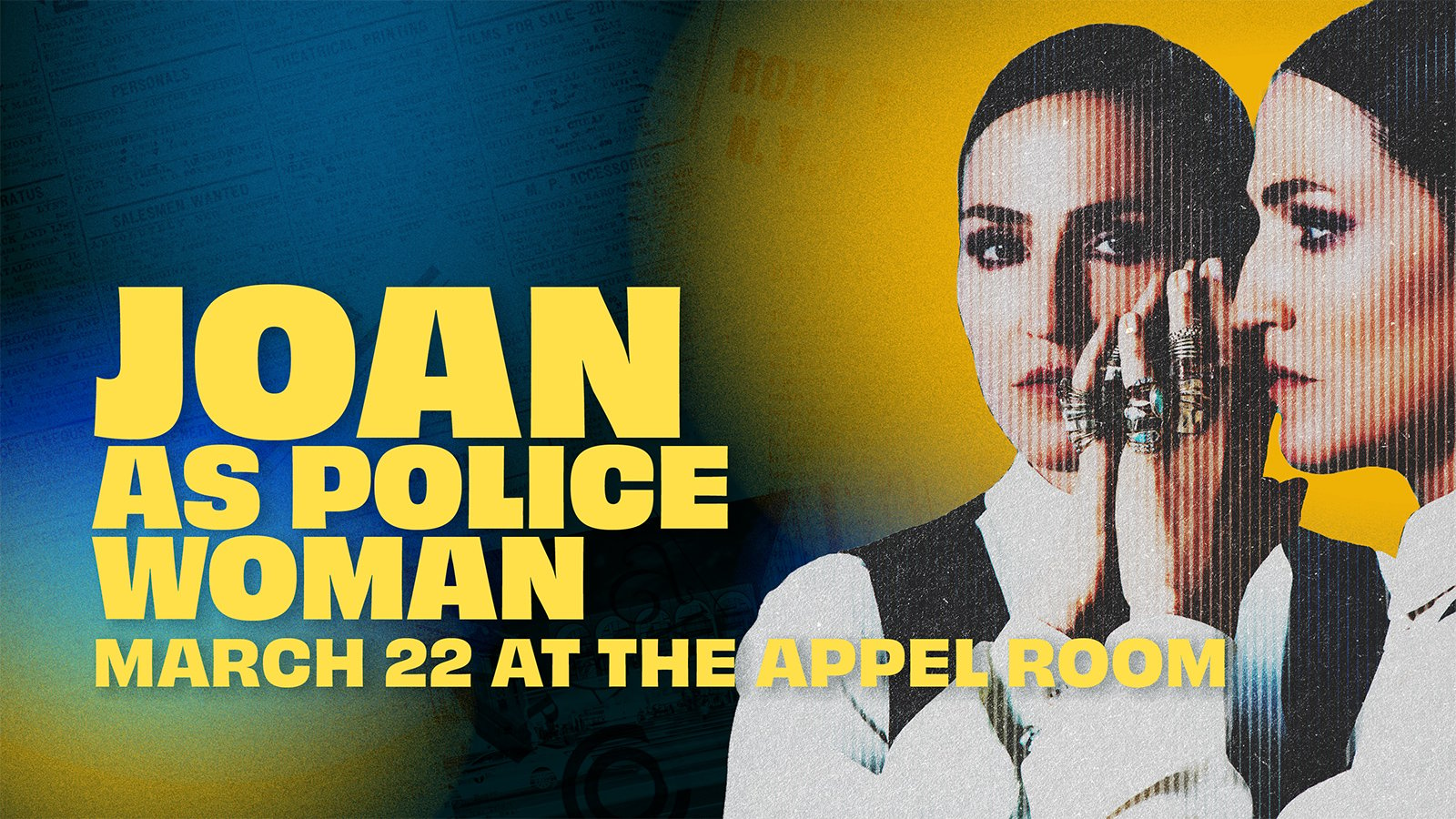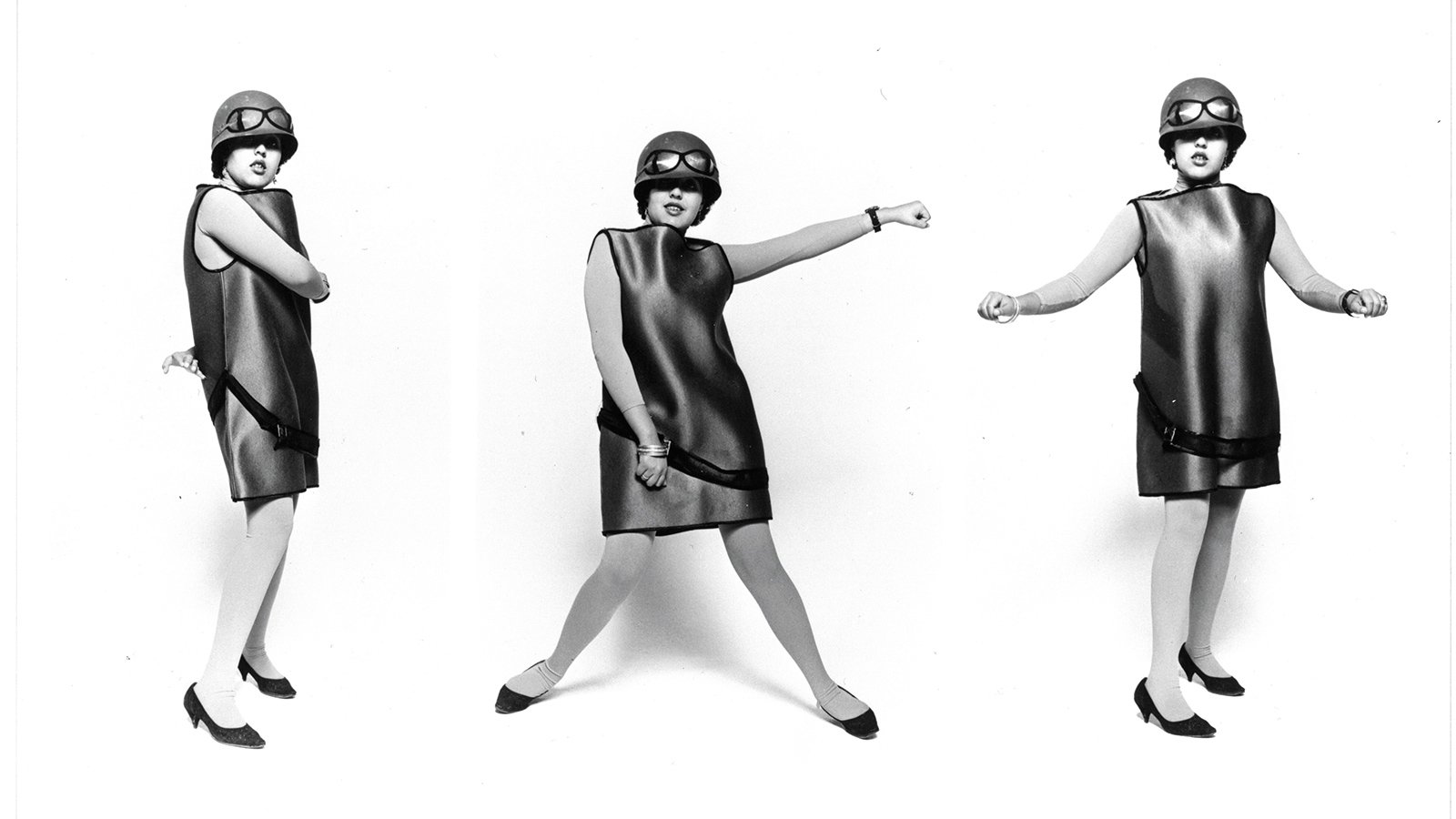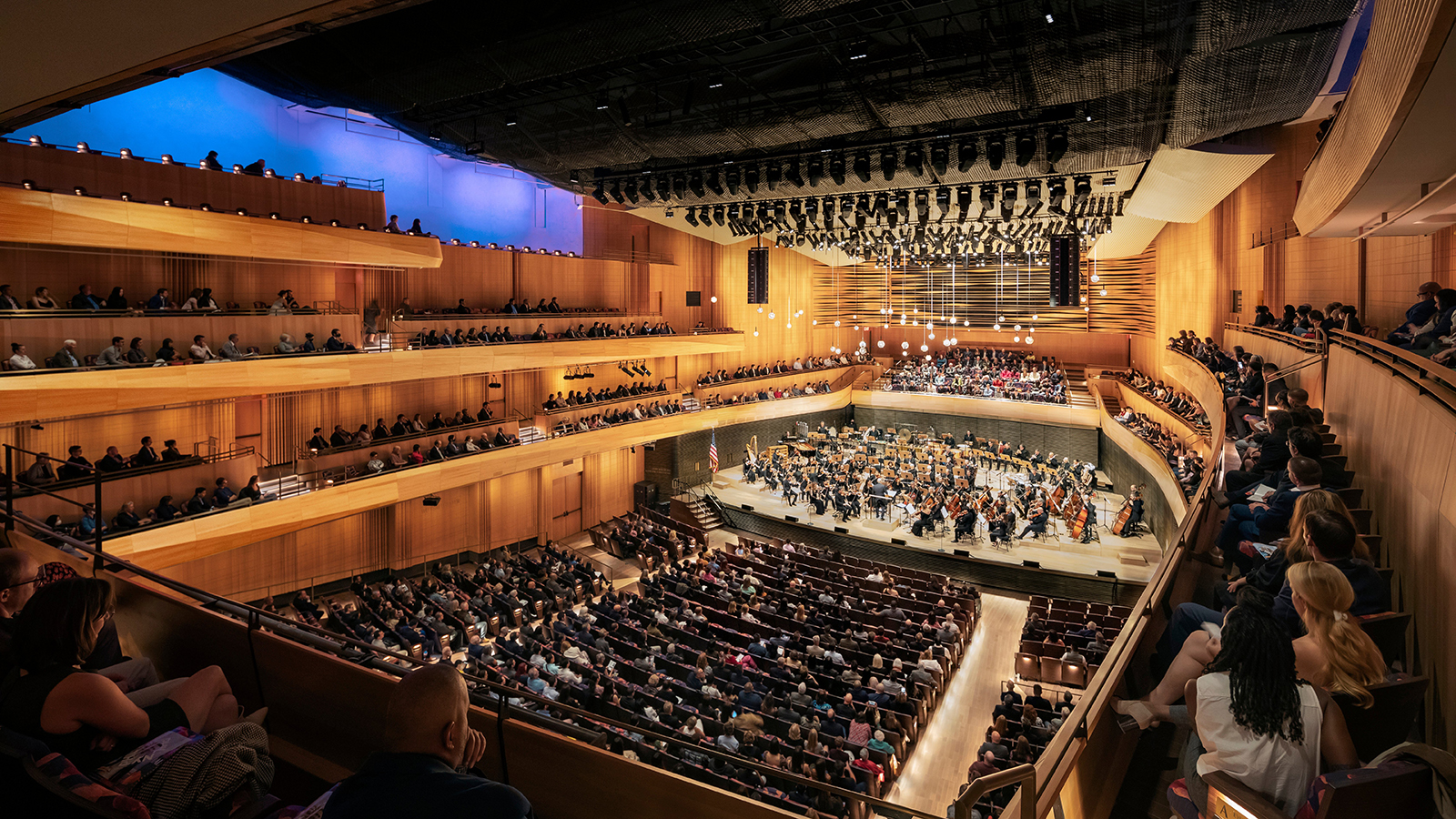
Menu
-
Upcoming Events
-
About
-
Ticketing
-
Visit
-
Membership
-
Ticketing
-
Choose-What-You-Pay
-
Fast Track
Be the first to know!
Thank you
Sign Up
For more information about how we use the information you provide to us, visit our Privacy Policy.
American Songbook: Singer Outsiders
February 11–April 15, 2025
Curated in collaboration with Tamar-kali and Kathleen Hanna
This season's American Songbook reclaims and elevates our Singer Outsiders, women and nonbinary musicians who have shaped the modern landscape of music and performance and continue to drive conversations on gender, identity, and empowerment.
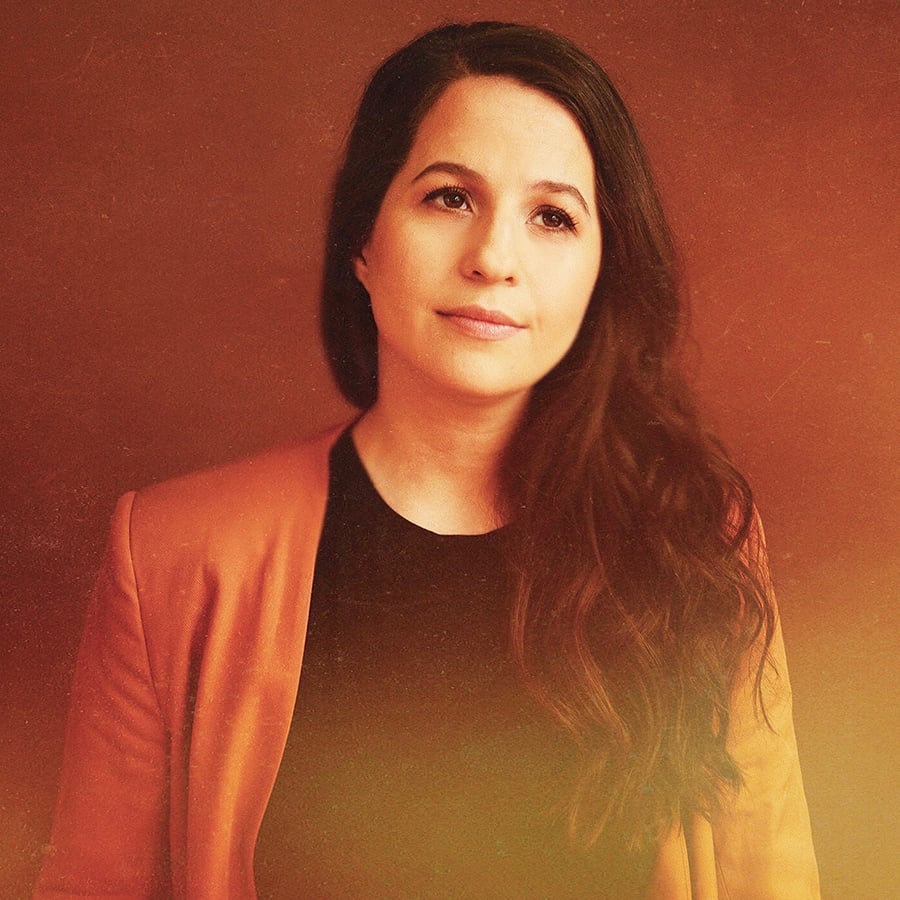
Get exclusive access
Become a Member and you’ll unlock priority access to American Songbook and our hottest Lincoln Center Presents events all season-long. Join today »
Book Fast Track on Mondays
In addition to General Admission, we’re offering a FREE Fast Track option for events at the Atrium—giving you priority access. Bookmark this page »Upcoming events
Lincoln Center Presents
American Songbook
Shaina Taub
March 21 at 8:30 pm
The Appel Room, Jazz at Lincoln Center
Singer/songwriter Shaina Taub, Tony Award winner for both the score and book of Broadway’s Suffs, makes a triumphant return to American Songbook.

MUSICAL THEATER
POP
Lincoln Center Presents
American Songbook
Joan as Police Woman
March 22 at 8:30 pm
The Appel Room, Jazz at Lincoln Center

MUSIC
SOUL
JAZZ
Lincoln Center Presents
American Songbook
Meshell Ndegeocello
March 23 at 8:30 pm
The Appel Room, Jazz at Lincoln Center

R&B
HIP-HOP
ROCK
Lincoln Center Presents
American Songbook
Poly Styrene: I Am A Cliché
Film Screening
March 26 at 7:30 pm
David Rubenstein Atrium

FILM
MUSIC
PUNK
The Queens of Noise are here

Today's Singer Outsiders show up and show out
Operatic soprano Julia Bullock presents History's Persistent Voice, a multimedia musical recital exploring Black American tradition and artistry. In April, trailblazing indie rock bands Gossip and ESG honor Fanny, the first all-female rock band to record a full album at a major label. Also in April, Tarta Relena, Los Sara Fontan, and Cocanha perform 4132314, a theatrical show embracing sorority and the common thread of connection that binds us all. Closing out the series at David Geffen Hall, French Chilean rapper Ana Tijoux celebrates her first new album in nearly a decade!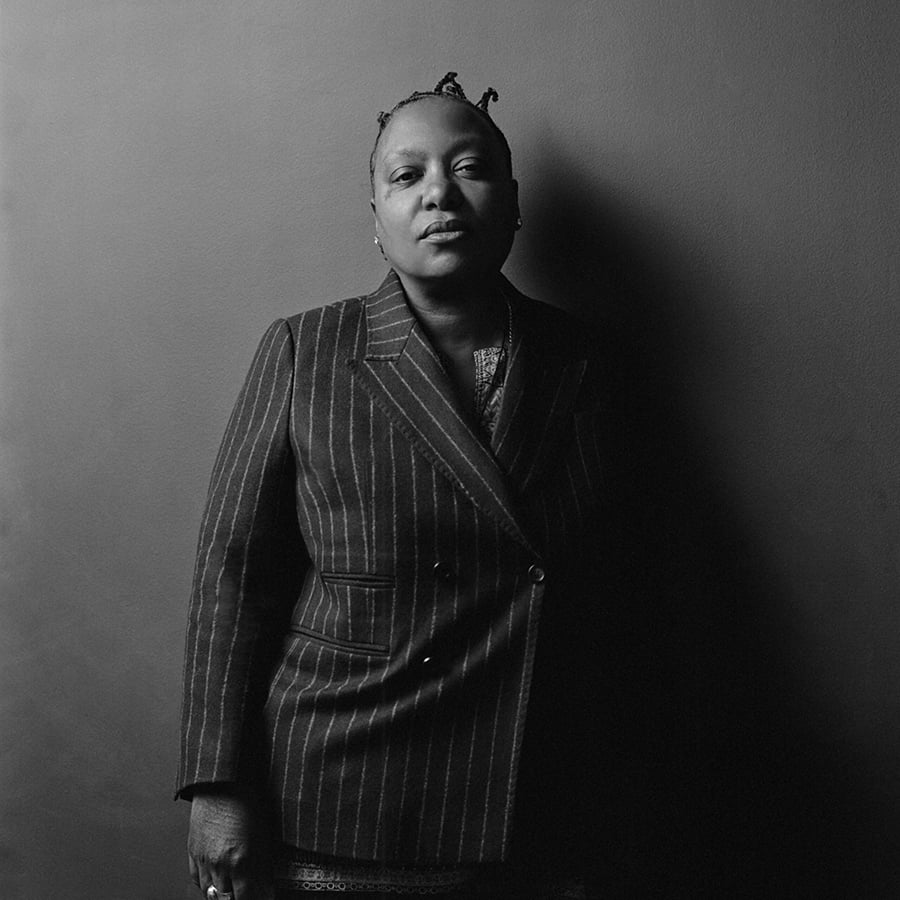
Fearless voices of our generation defy expectations
This year's American Songbook embraces women and nonbinary powerhouses from across musical worlds, celebrating their artistic evolution and authentic expression. Tony Award winner of Suffs on Broadway, Shaina Taub, makes a triumphant return to the Lincoln Center stage; Joan as Police Woman shares her undeniably soulful sound with classic and new tracks; and Meshell Ndegeocello presents an evening of soul, R&B, jazz, Hip-Hop and rock—all for Choose-What-You-Pay prices at the breathtaking Appel Room.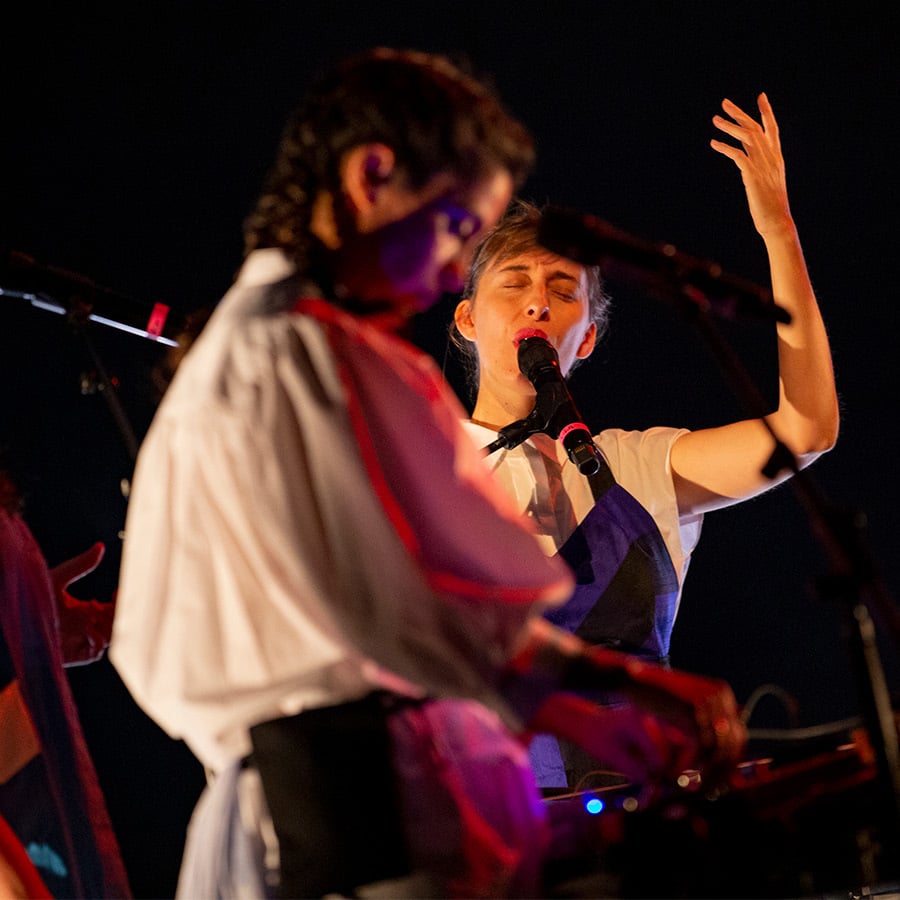
Musical collaborations affirm the power of community
The essence of alternative and punk music has always been spontaneous, eclectic, audacious, and exciting; and its influence continues to touch mainstream sounds and culture. Co-curators Tamar-kali and Kathleen Hanna are bringing together numerous musical acts, all accompanied by the American Songbook house band, for three rockin' tribute nights at the David Rubenstein Atrium—hailing punk girl legends past and present. Join us for these free, community-centric concerts this spring: Tribute to Poly Styrene, Tribute to The Slits, and Mixtape: Women in Punk.We've sent an email to the address you provided. To complete your subscription, please click the link in the email.
Be the first to know!
Thank you
Receive hot-off-the-press news about Lincoln Center's American Songbook.
We've sent an email to the address you provided. To complete your subscription, please click the link in the email.
Submit

Tributes to punk pioneers
Free
April 4 at the Atrium
Explore more
About
Upcoming events
How to get tickets
Plan your visit
Food and dining at Lincoln Center
Upcoming American Songbook Events
Jump to date
Filter By:
In-person
Digital
Filters
Event Type
Dance
Film
Opera
Theater
Jazz
Popular Music
Classical Music
Music
Exhibition
Talk
Tour
Workshop
Family
Livestream
Support Portal
Corporate Fund
Hall of Fame
Gala
Screenings
Free
Fast Track
Choose-What-You-Pay
Hip-Hop
Jazz
Musical Theater
Punk
Other
Venues
Alice Tully Hall
David Geffen Hall
David Rubenstein Atrium
The Appel Room
results for ""
Filtered by:
February 2025
Feb 2025
S
M
T
W
T
F
S
American Songbook: Singer Outsiders
February 11–April 15, 2025
Women and non-binary artists who have contributed to the ongoing history of the American Songbook have often created at the outskirts of the possible, innovating ahead of their time and defying expectations. From the underground punk scene to soul-filled jazz clubs, and the Broadway stage, these fearless heroes use music to voice their truth—and inspire their communities to do the same. Taking a cue from Sister Outsider, Audre Lorde's influential essay collection on feminist theories and identity, this season's American Songbook reclaims and elevates our Singer Outsiders, musicians who have shaped the modern landscape of music and performance and continue to drive conversations on gender, identity, and empowerment. Curated in collaboration with iconic genre-defining composers and singers Tamar-kali and Kathleen Hanna, Lincoln Center proudly presents a bold and eclectic lineup of powerhouse voices from across the punk, pop, jazz, classical, R&B, and theater worlds. The queens of noise are here to stay!
Plan Your Visit
This year’s American Songbook performances will be presented in one of four venues across the Lincoln Center campus: Alice Tully Hall, David Geffen Hall, David Rubenstein Atrium, and The Appel Room at Jazz at Lincoln Center. Please check the event page carefully to determine the correct venue for that performance.
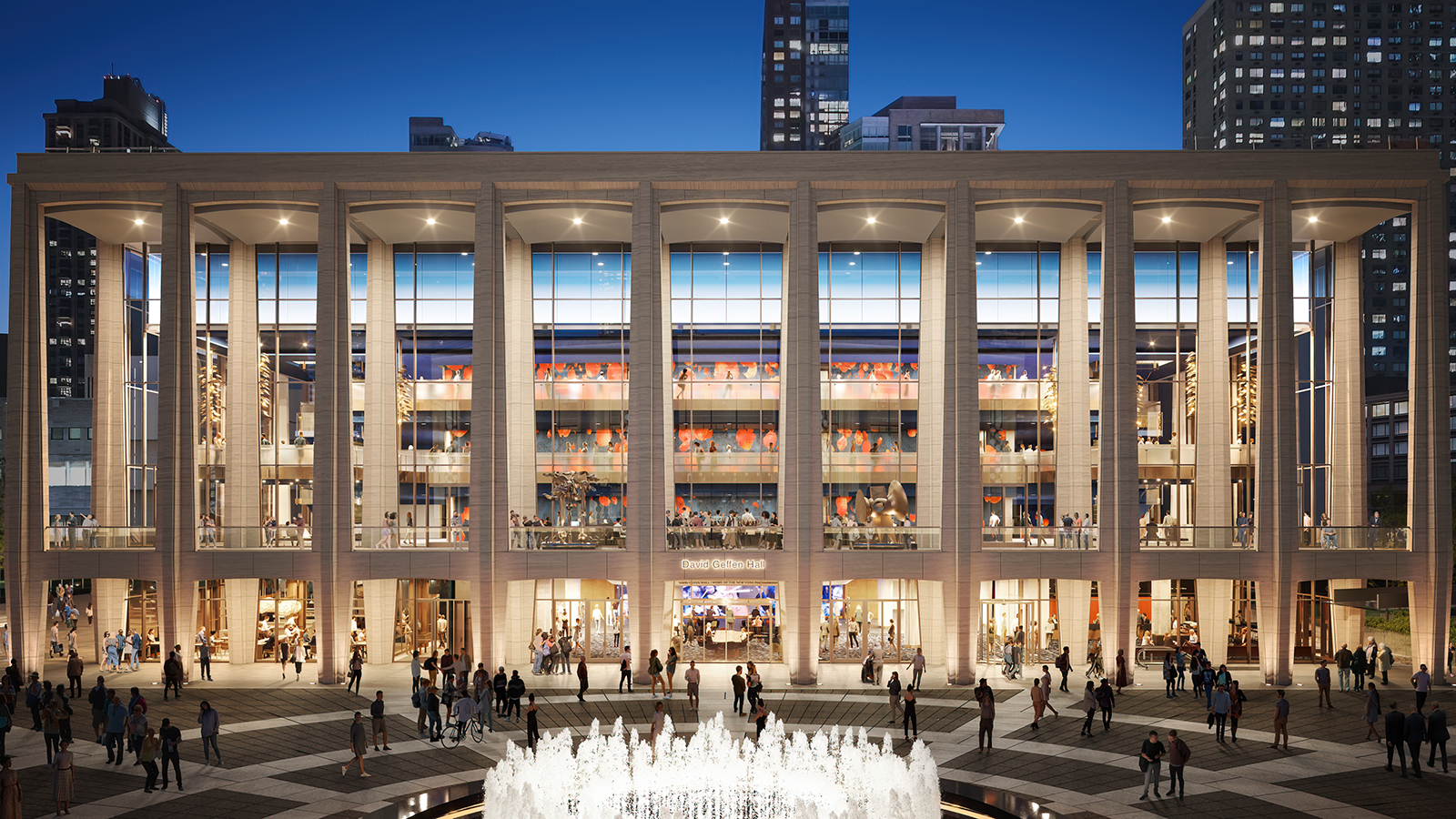
Contact us
For tickets and box office information, please contact CenterCharge at 212-721-6500 on Monday–Saturday 10:00 am–8:00 pm and Sunday noon–6:00 pm. For general inquiries about this year's American Songbook, contact Guest Experience at 212-875-5456 or email [email protected].
Learn more about the venues
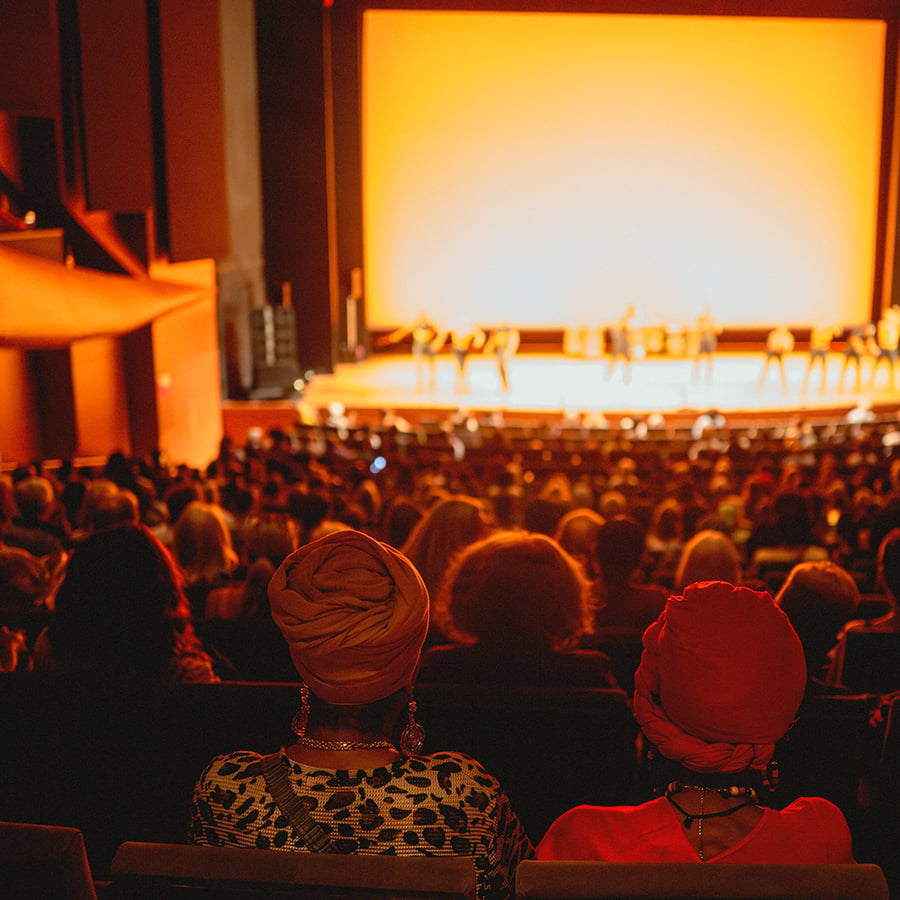
Alice Tully Hall
1941 Broadway, New York, NY 10023 / View map
Performances take place on the Adrienne Arsht Stage, within the warm wood veneers of the Starr Theater. In addition to world-class chamber music, Alice Tully Hall hosts numerous virtuoso concerts on its cathedral-sized, Swiss-made pipe organ. Learn more »
American Songbook events at Alice Tully Hall: History’s Persistent Voice and 4132314: Tarta Relena, Los Sara Fontan, and Cocanha
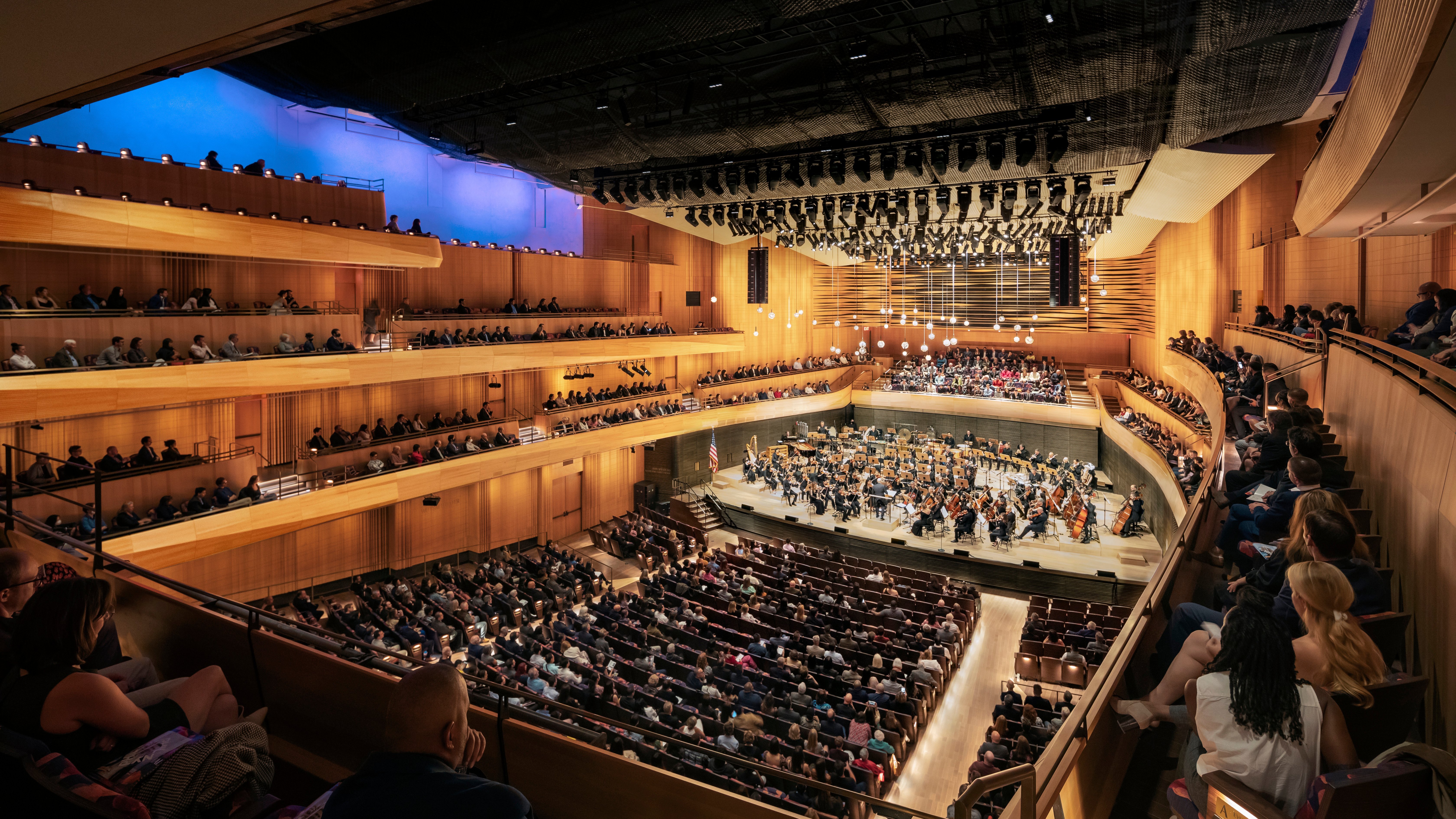
David Geffen Hall
10 Lincoln Center Plaza, New York, NY 10023 / View map
Home to the New York Philharmonic, the Wu Tsai Theater is designed with optimized sightlines in mind, resulting in a unified and intimate relationship between audience and performer. The hall's state-of-the-art flexibility accommodates choral performances, recitals, semi-staged opera, dance, film premieres, amplified pop and rock concerts, and more. Learn more »
American Songbook events at David Geffen Hall: Gossip and ESG: Honoring Fanny and Ana Tijoux
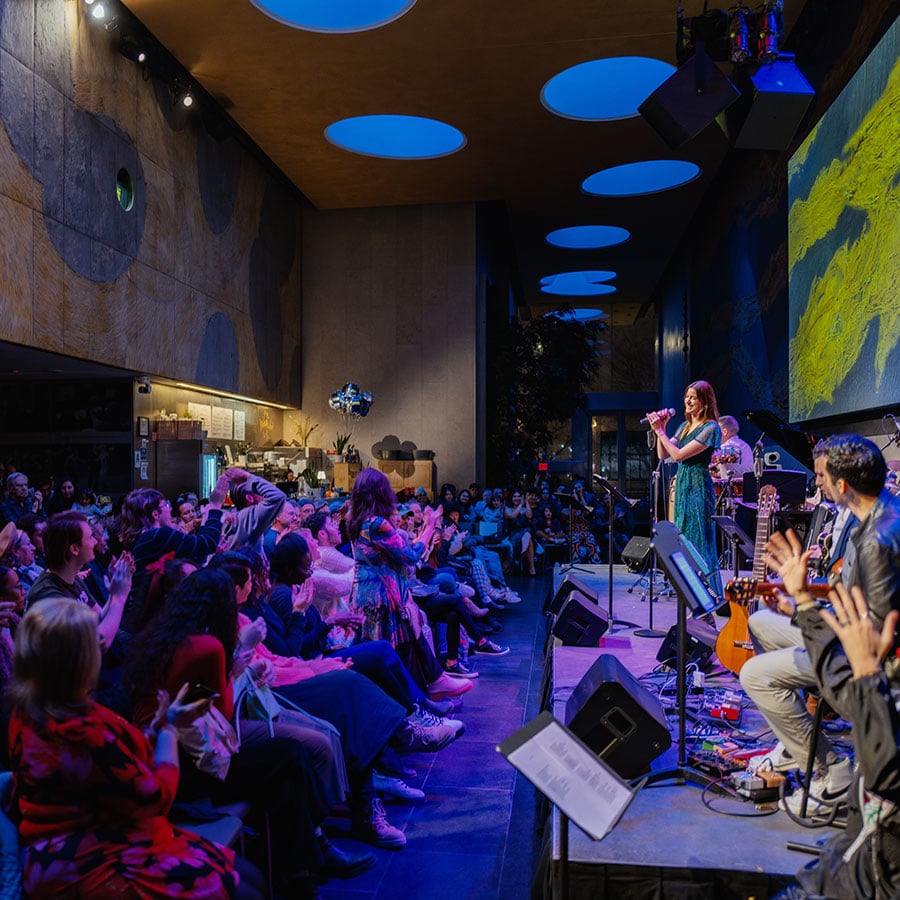
David Rubenstein Atrium
1887 Broadway, New York, NY 10023 / View map
The David Rubenstein Atrium is where arts and democracy converge—committed to the values of welcoming all, artistic innovation, audience and artist intimacy, and community partnership. The Atrium’s free programming opens our world to culture that addresses today’s most pressing issues and explores our common humanity. Learn more »
American Songbook events at the Atrium: Tribute to Poly Styrene, Tribute to The Slits, and Mixtape: Women in Punk
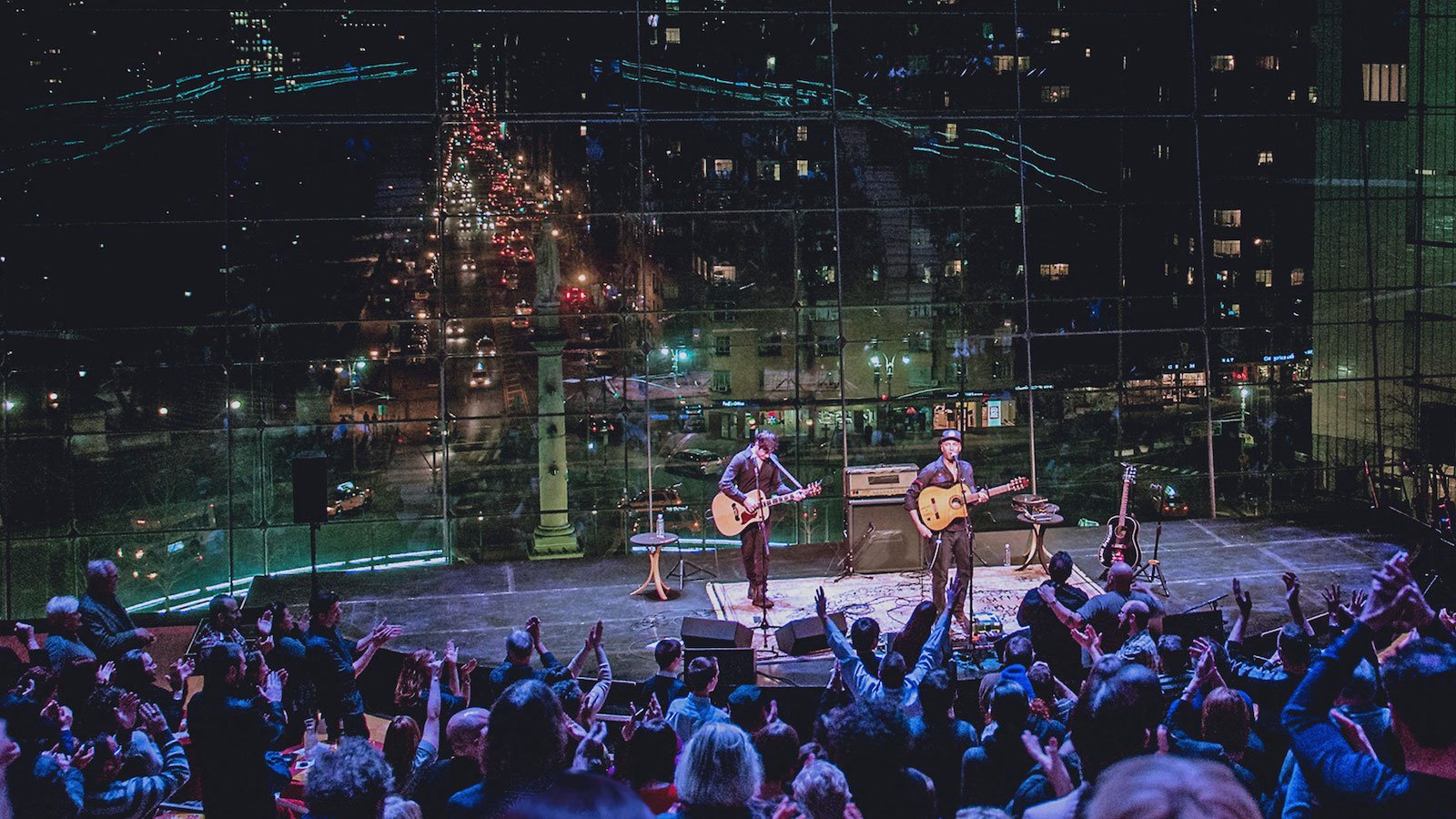
The Appel Room at Jazz at Lincoln Center
10 Columbus Circle, New York, NY 10019 / View map
Based on the design of a Greek amphitheater, The Appel Room has one of New York City’s most dramatic and breathtaking backdrops: a 50’ by 83’ wall of glass overlooking Central Park, Columbus Circle, and the Manhattan skyline. Learn more »
American Songbook events at The Appel Room: Shaina Taub, Joan as Police Woman, and Meshell Ndegeocello
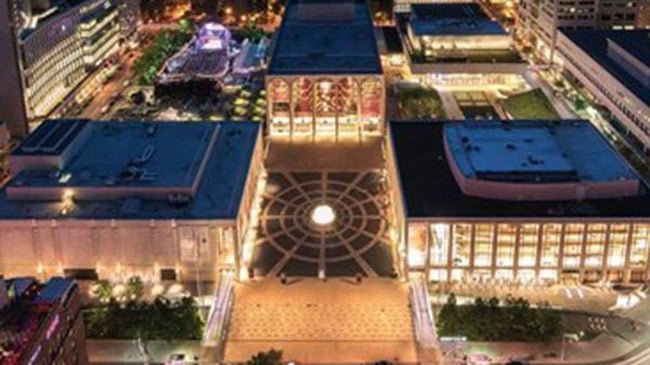
Reserve parking
To reserve parking near Alice Tully Hall, David Geffen Hall, or the David Rubenstein Atrium, call 212-721-6500 or visit the Parking Reservations website. For parking near Jazz at Lincoln Center, call 212-490-3460.Accessibility
Lincoln Center’s approach to accessibility mirrors our commitment to transform performing arts spaces to be more inclusive of our audiences’ identities and access needs by design, not as an afterthought or add-on.
Learn more about the accommodations at this year's venues:
Alice Tully Hall
David Geffen Hall
David Rubenstein Atrium
The Appel Room at Jazz at Lincoln Center

Health & Safety
Lincoln Center for the Performing Arts ("LCPA") is committed to the safety of our visitors, performers, and employees. Our guidelines for events and performances at outdoor and indoor venues managed by LCPA or when LCPA is the presenter can be found here »
Ticketing Overview
Our goal is to continue exploring new ticketing practices together as a community to make our performances more accessible to more people and to center equity and inclusion in every aspect of our field. All American Songbook performances are FREE or Choose-What-You-Pay. Please refer to the dedicated event page of the show you’d like to attend to confirm ticketing options.
Free General Admission Events
American Songbook performances at the David Rubenstein Atrium are available for FREE via General Admission—first-come, first-served. Advance reservations are not required for these events; just show up! While we'll do our best to accommodate as many guests as possible, we cannot guarantee admission.
Free Fast Track Option
In addition to General Admission, all performances at the David Rubenstein Atrium offer a FREE Fast Track reservation option, giving priority entry into events. Reservations for Fast Track will open every Monday at noon for that week's events and can be reserved on this page. Please check the event's dedicated web page to confirm if Fast Track is available for the performance you'd like to attend.
Choose-What-You-Pay Events
American Songbook performances held at Alice Tully Hall, David Geffen Hall, and The Appel Room are available on a Choose-What-You-Pay basis. With Choose-What-You-Pay ticketing, you decide what's right for you. We offer a suggested ticket price, as well as options to pay more or less. The minimum ticket price is $5.00.
3 Ways to Buy Tickets
There are three ways to purchase Choose-What-You-Pay tickets.
1. Book online from the event's dedicated web page.
2. Call CenterCharge at 212-721-6500 from Monday–Saturday 10:00 am–8:00 pm and Sunday noon–6:00 pm.
3. Book in-person at the Alice Tully Hall box office (Broadway and 66th Street) or the David Geffen Hall box office from Monday–Saturday 10:00 am–6:00 pm and Sunday noon–6:00 pm.
Choose-What-You-Pay
With Choose-What-You-Pay ticketing, you decide what's right for you. We offer a suggested ticket price, as well as options to pay more or less. The minimum ticket price is $5.00.
Tickets on sale now
Thanks to Our Supporters
Fast Track reservations opening February 24 at noon
Fast Track reservations opening March 3 at noon

History's Persistent Voice is a multimedia ethnographic anthology envisioned by curator and GRAMMY Award-winning singer Julia Bullock. The program’s focus is on the influence of pre-Emancipation voices across generations, emphasizing that era’s poetic musical traditions while centering the multifaceted identities of the Black American experience, realized through art. These works are given new life through Bullock's powerhouse vocal renditions, far-ranging connective research, and a quintet of newly commissioned compositions crafted by an esteemed roster of American women of color that features Jessie Montgomery, Tania León, Allison Loggins-Hull, Carolyn Yarnell, and Pamela Z. Additional collaborators include the fellow GRAMMY Award-winning conductor Christian Reif and the Tony Award-winning designer and immersive visual artist Hana S. Kim. Previously seen at The Met Museum and the San Francisco Symphony, this evening represents the ever-evolving presentation's Lincoln Center debut.
Program
HISTORY’S PERSISTENT VOICE
Julia Bullock, Curator and Singer
Christian Reif, Conductor
Hana S. Kim, Visual Artist and Projection Designer
New Haven Symphony Orchestra
Cath Brittan, Line Producer
Patricia Luna & Katerina Pagsolingan, Animators
Nicholas Chimienti, Video Engineer
ArKtype / Thomas O. Kriegsmann & Sami Pyne, Producers
Produced in Partnership with Yale Schwarzman Center
Freedom Songs by Jessie Montgomery
Inspired from songs developed by enslaved people in the United States
“My Lord What a Morning”
“I Want to Go Home”
Reading poem excerpt from “The Words Would Not Come” by Craig Anthony Ross
“Lay This Body Down”
“My Father How Long”
Reading of “The Storm” by Joe Sullivan
“The Day of Judgement”
Reading of “AT THE PRISON GATES” by Una Marson
blue skies, bluer seas (2023–New York premiere) by Cassie Kinoshi
Inspired by the words and work of poet Una Marson
Reading poem excerpt from “INVOCATION” by Una Marson
Mama’s Little Precious Thing
by Allison Loggins-Hull
Inspired by words of Louise Williams, granddaughter of quilter Willie “Ma Willie” Abrams, and Ma Willie’s quilts
INTERMISSION (15 minutes)
I Come Up The Hard Way by Carolyn Yarnell
Inspired by words of visual artist Sue Willie Seltzer
this world ain’t my home by Carolyn Yarnell
Inspired by words of visual artist Nellie Mae Rowe
Reading from interview of Nellie Mae Rowe
Quilt by Pamela Z
Based on the film “While I Yet Live” directed by Maris Curran and inspired by the Alabama quilters of Gee’s Bend. Features the voices of Mary Lee Bendolph, Essie Pettway, China Pettway, Rita Mae Pettway and Lucy Mingo
Green Pastures by Tania Léon
Inspired by words and visual art of Thornton Dial
Carolyn Yarnell’s I Come Up The Hard Way and this world ain’t my home (2022) commissioned by Yale Schwarzman Center as part of Bryce Dessner’s Artist-in-Residence Series, Produced by ArKtype.
Photo of Nellie Mae Rowe, Vinings, Georgia 1971 ©Melinda Blauvelt (Yale BA'71, Yale MFA'73) All Rights Reserved
Jessie Montgomery’s Five Freedom Songs was co-commissioned by the New Haven Symphony Orchestra, Alasdair Neale, Music Director and Elaine Carroll, CEO. These are NHSO’s premiere performances of the work.
Cassie Kinoshi’s blue skies, bluer seas was commissioned by Philharmonia Orchestra, London.
Musicians of the New Haven Symphony Orchestra
Violin I
Stephan Tieszen, Concertmaster
Bin Gui, Assistant Principal
Jorhendi Esquivel
Emma Carleton
Violin II
Stephanie Hug, Principal
Elisabeth Ewe, Assistant Principal
Gregory Tompkins
Marika Basagoitia
Viola
Marvin Warshaw, Principal
Ellen Higham, Assistant Principal
Yaroslav Kargin
Cello
Rebecca Patterson, Principal
Olivia Jakyoung Huh, Assistant Principal
Jill Emerson
Bass
Chris Johnson, Principal
Samantha Donato, Assistant Principal and Electric Bass
Percussion
Aya Kaminaguchi, Principal
Christopher Smith
About the Program
History’s Persistent Voice, Julia Bullock’s original and ever-developing program, highlights the words, work, and experiences of B/black artists. In this mixed media concert, voices spanning across generations who were enslaved through the 1860s are heard alongside those who lived through years of colonialism, convict leasing, sharecropping, Jim Crow, and mass incarceration.
Julia Bullock notes: “Several years ago, the composer Jessie Montgomery and I started going through this anthology that was released just after the Civil War. These educators and musicologists went across the United States to newly freed communities of people who had been enslaved, and transcribed 136 lyrics and melodies. After reviewing all of these songs, which yes, acknowledge the violence, trauma and oppression that was very much a reality at that time, what was deeply inspiring for me to read—and now to vocalize—is this clear affirmation of life.”
History’s Persistent Voice features all-new commissioned music by an esteemed roster of women. “With all of those themes of inspiration, aspiration, and seeking one’s own liberation through creative endeavors,” Bullock says, “I sought to find composers that could represent this incredible diversity of voices and experience—they include Jessie Montgomery, Tania León, Allison Loggins-Hull, Carolyn Yarnell, Pamela Z, and Cassie Kinoshi — a group of B/black identifying women who are tremendous, thoughtful musicians.” Although cycles of targeted violence, oppression, and demoralization are ongoing, I believe it’s clear for every artist featured on this program, that various forms of human expression can facilitate some manifestation of liberation and freedom.”
Julia Bullock wishes to express thanks and appreciation to lawyer Bryan Stevenson and social worker Maria Morrison at the Equal Justice Initiative for facilitating correspondence with their clients over the past years; artist Nicola White, who helped make connections with poets and their family members at San Quentin Prison; for administrators at the Artists Rights Society, the Souls Grown Deep Foundation, the High Museum, the Metropolitan Museum of Art, The San Francisco Symphony, ArKtype, Bryce Dessner and Yale Schwarzman Center.
Biographies
Jessie Montgomery is an acclaimed composer, violinist, and educator. In May 2021, she began a three-year appointment as the Mead Composer-in-Residence with the Chicago Symphony Orchestra. She is the recipient of the Leonard Bernstein Award from the ASCAP Foundation and the Sphinx Medal of Excellence. Her music interweaves classical music with elements of vernacular music, improvisation, poetry, and social consciousness, making her an acute interpreter of twenty-first-century American sound and experience. Since 1999, Montgomery has been affiliated with the Sphinx Organization, which supports young African American and Latinx string players, and she has served as composer-in-residence for the Sphinx Virtuosi. She holds degrees from the Juilliard School and New York University and is currently a PhD Candidate in Music Composition at Princeton University. She is Professor of violin and composition at The New School. Five Freedom Songs was co-commissioned by the Sun Valley Music Festival, San Francisco Symphony, Boston Symphony, Grand Teton Music Festival, Kansas City Symphony, New Haven Symphony, and Virginia Arts Festival. It was conceived in collaboration with Julia Bullock, composed it in 2020, and premiered in August 2021 at the Sun Valley Music Festival. Montgomery described: We wanted to create a song cycle that honors our shared African-American heritage and the tradition of the Negro spiritual, while also experimenting with non-traditional stylistic contexts. Each of the five songs in this cycle are sourced from the historical anthology Slave Songs of the United States (originally published by A. Simpson & Co., New York, 1867), which categorizes each song based on origin and social context. For example, “My Lord, What a Morning” is actually the original lyric to the more popular spiritual “Stars Begin to Fall,” which also originated in the Southeastern slave states. “I Want to Go Home” also originates from the Southeastern states, and my setting is inspired by the simple way it was transcribed as a simple seven-note melody without an indicated rhythm, which inspired me to write it in a hybrid Gregorian chant/ spiritual style. “Lay dis Body Down,” a funeral song said to originate from the region surrounding South Carolina, is set in an improvised style, wherein each part of the ensemble chooses their own pacing of the line to create a swirling meditation. “My Father, How Long?” contains the refrain “We will soon be free, we will soon be free, De Lord will call us home,” the words of which reflect the dual meaning between spiritual salvation and freedom from oppression. It is a song that emerged from a jail in Georgetown, SC at the break of the Great Rebellion, and accompanied by percussive sounds in the strings evoking the chain gang. “The Day of Judgment” originates from the region surrounding Louisiana and is set as an uneasy celebration over the refrain of a traditional West African drumming pattern.
Cassie Kinoshi is a Mercury Prize-nominated (2019) and Ivors Academy Award-winning (2018) Berlin/London-based composer, arranger and alto saxophonist with a focus on creating multi- disciplinarily and genre-blending performance. The composer states: “blue skies, bluer seas takes its name from the 1937 poem Cameo by Una Marson. She was a Jamaican writer, poet, the first Black woman BBC radio presenter, and a notable activist who spent many years of her life in London. Marson’s poetic work serves as a poignant source of inspiration for the piece, not only drawing from the vivid imagery of the poem but also, albeit loosely, from its form. Originally written as a gentle ode to the beauty and people of Marson’s homeland of Jamaica, the poem transcends its immediate context and also captures the rich tapestry of cultures and splendour of the natural landscapes found across many of the Caribbean islands. In mirroring the essence of Cameo, the piece seeks to create an ethereal, warm and stirring reflection on the humanity and everyday lives of the inhabitants of the former ‘West Indian’ British colonies alongside celebrating the depth of their alluring surroundings. blue skies, bluer seas invites listeners to embark on a journey exploring heritage, nature and the everyday.”
Allison Loggins-Hull is a flutist, composer, and producer whose work defies classification. She has worked across the spectrum of popular and classical music, including performances with Flutronix, Los Angeles Philharmonic, Lizzo, Imani Winds, and Alarm Will Sound. Her music is resonant with social and political themes of the current moment, encompassing motherhood, Blackness, and cultural identity. During the 2021–22 season, she joins the Bang on a Can All-Stars for their annual People’s Commissioning Fund concert. With Flutronix, she premieres two projects: Black Being at the Arts Club of Chicago and Discourse with Carolina Performing Arts. Loggins-Hull composed Mama’s Little Precious Thing in 2018, commissioned by the Metropolitan Museum of Art for Julia Bullock. The composer described: Mama’s Little Precious Thing is inspired by Willie “Ma Willie” Abrams, one of the renowned quilters of Gee’s Bend [Alabama], and her “Roman Stripes” quilts. Her granddaughter, Louise Williams, described her as a quiet woman, but in the presence of an infant or young child, that would change and she “would just light up.” She was known for comforting and improvising lullabies to these children and many times she used the words “Mama’s little precious thing.” Williams says, “Even though Ma Willie was a very quiet person, there was strength in her quietness. She was born in 1897 in a small country town in Alabama, where, even though slavery had officially been over for years, many were still living in the aftermath of it. I believe she was quiet not because she didn’t have anything to say, but because she came from a world where you did not speak until you were spoken to.” Mama’s Little Precious Thing borrows stylings from lullabies (the piece opens with a play on Brahms’s lullaby) and traditional Black southern musical idioms including the blues and call-and-response. Informed by her “Roman Stripes” pieces, the string ensemble often represents her use of vertical (pizzicati) and horizontal (long and sustained) lines.
Carolyn Yarnell, a composer, writer, and visual artist, expands the realm of classic beauty through sight and sound. She finds her sources of inspiration in nature, science, and in the spectrum of human experience. A native Californian, she is a graduate from the San Francisco Conservatory of Music and Yale. She has received a Fulbright Fellowship to Iceland, a Guggenheim Fellowship, and the Rome Prize, among other awards. Yarnell has written of her work: A thousand words unspoken, my art is both an expression of, and liberation from, this material world that my restless soul has found itself temporarily but so inextricably bound up in. Being a visual artist, my music explores color and form through the depths of emotion. Being a musician, in my visual work I draw from the formal techniques and the spontaneity of classical musical composition, incorporating counterpoint, tonal harmony and improvisation to create both linear and vertical depth. My works are not clear representations of places or things, they are rather like fleeting frozen moments perceived from great distances through the curved lens of time. I Come Up The Hard Way and ain’t my home were composed for Julia Bullock, in part during a 2022 residency at the Headlands Center for the Arts in Sausalito, which the composer gratefully acknowledges. Yarnell described: The philosophy of Nellie Mae Rowe and Sue Willy Seltzer deeply move me, and by a miracle their words were gifted through the realms of time for me to set to music. Humble as dust, transcendent to the stars, these noble souls convey genuine gratitude for every experience life presented, looking to the beyond. No matter how difficult circumstances seem, if even the tiniest detail were altered at any point in time, none of us would have made it here to this place in history. “I call it ‘the hard way,’ but God still brought me here, and I thank him.” —Sue Willie Seltzer
Pamela Z is a composer, performer, and media artist making works for voice, electronic processing, samples, gesture activated MIDI controllers, and video. She has toured throughout the US, Europe, and Japan. Her work has been presented at venues and exhibitions including Bang on a Can, Japan Interlink Festival, Other Minds, Venice Biennale, and Dakar Biennale. She has composed scores for dance, film, and chamber ensembles including Kronos Quartet and Eighth Blackbird. Her awards include the Rome Prize, United States Artists, the Guggenheim, Doris Duke Artist Impact Award, Robert Rauschenberg Foundation, and the Herb Alpert Award. Quilt was written in 2022 based on excerpts from interviews with five quilters from Gee’s Bend, AL, featured in the film While I Yet Live by Maris Curran. The composer described: When Julia contacted me about composing a piece for her History’s Persistent Voice project, she forwarded a number of links to texts, sound files, and videos that might serve as inspiration for the music or sources for the libretto. Among them was a short documentary film by Maris Curran about a group of quilters in a small Alabama town. I was immediately struck by the sound of the women featured in the film, and found a lot of music in their speaking voices. Almost everything played by the orchestra and much of what Julia sings is taken from direct musical transcriptions of phrases spoken by Essie Pettway, Mary Lee Bendolph, Rita Mae Pettway, Lucy Mingo, China Pettway, and Mary Ann Pettway, whose voices I sampled and used to create the “tape” part of this work. It is a frequent practice of mine to find melodic and rhythmic motifs in speech sounds and build musical structures from them. I often cut them into very small fragments—words, syllables, even just phonemes—so that they transform into something quite abstract. But, in this case, I felt compelled to keep the speech fragments more intact, and allow the women’s stories to come through more clearly.
Tania León was born in Havana, Cuba, and is a composer, conductor, educator, and advisor to arts organizations. Her orchestral work Stride, commissioned by the New York Philharmonic, was awarded the 2021 Pulitzer Prize in Music. Recent commissioners include the Los Angeles Philharmonic, NDR Symphony Orchestra, and International Contemporary Ensemble. Green Pastures was composed in 2018, inspired by the words and art of Thornton Dial (1928–2016). The composer wrote: Green Pastures was inspired by my thoughts after reading a series of statements made by Thornton Dial in interviews. I was moved by his humility, and by his love of nature as he grew up. His statements touched on the experiences he received thanks to many jobs he held when he was young, and on his attraction to collecting objects. Many of these objects were later included in his art pieces and sculptures, including the workers’ gloves which depict dead birds hanging from a clothesline in Green Pastures: The Birds That Didn’t Learn How To Fly. His words became the central spine of the piece, inspiring the music I created to highlight his powerful perspective.
Grammy-winning American classical singer Julia Bullock combines versatile artistry with a probing intellect and commanding stage presence. As well as headlining productions and concerts at preeminent arts institutions around the world, she has held positions as Featured Artist of London’s Philharmonia Orchestra and Artist-in-Residence of New York’s Metropolitan Museum of Art, London’s Guildhall School of Music and Drama, and the San Francisco Symphony. A prominent voice of social consciousness and activism, she was named a 2021 Artist of the Year and “agent of change” by Musical America. Bullock’s operatic career spans repertoire from the Baroque canon to contemporary works written expressly for her voice. This season, she makes title role appearances in both Handel’s Theodora at the Teatro Real Madrid and John Adams’s Antony and Cleopatra, a work composed with her in mind, at the Metropolitan Opera, where she recently made her house debut in his El Niño. She has previously created important new roles in Terence Blanchard’s Fire Shut Up in My Bones, Michel van der Aa’s Upload, and Adams’s Girls of the Golden West. In concert, she has performed with ensembles including the Los Angeles and New York Philharmonics; the Baltimore, Boston, London, NHK, and San Francisco Symphonies; the Deutsches Symphonie-Orchester Berlin; and London’s Philharmonia Orchestra and Orchestra of the Age of Enlightenment, with which she gives a transatlantic tour this season. Past solo highlights include tours with the American Modern Opera Company, of which she is a founding core member; the American, British, Belgian, and Russian premieres of Zauberland; and recitals at New York’s Carnegie Hall, Los Angeles’s Disney Hall, Philadelphia’ s Kimmel Center, Boston’s Celebrity Series, Washington’s Kennedy Center, and London’s Wigmore Hall. Bullock has developed and launched three signature projects, all flourishing nationally and beyond. Her multimedia ensemble program “History’s Persistent Voice” addresses the transatlantic slave trade through songs by people enslaved in the U.S. and through visual art, poetry, and new music by B/black female composers. Devised with her husband, Christian Reif, El Niño: Nativity Reconsidered is a chamber orchestral arrangement of El Niño that amplifies the voices of women and Latin American poets. Perle Noire: Meditations for Joséphine, created with Tyshawn Sorey, Claudia Rankine, Michael Schumacher, and Peter Sellars, reexamines the life and legacy of Joséphine Baker. Recorded with Reif and the Philharmonia Orchestra for Nonesuch, Bullock’s solo album debut, Walking in the Dark, won the 2024 Grammy Award for Best Classical Solo Vocal, as well as Opus Klassik and Edison Klassiek awards. Her discography also includes Grammy-nominated recordings of Doctor Atomic and West Side Story, while other honors include the Sphinx Medal of Excellence, Lincoln Center’s Martin E. Segal Award, and First Prize at the Naumburg International Vocal Competition.
Chief Conductor of the Gävle Symphony Orchestra and GRAMMY® Award-winning artist Christian Reif also serves as Music Director of the Lakes Area Music Festival in Minnesota. Highlights of Reif’s 2024/25 season include debut performances with the Los Angeles Philharmonic at the Hollywood Bowl, Phoenix Symphony, Detroit Symphony, and Canada’s National Arts Centre Orchestra. He returns to SWR Symphony Orchestra and Royal Northern Sinfonia and conducts his own arrangement of John Adams’ El Niño with the Münchner Rundfunkorchester, Gävle Symphony, and the American Modern Opera Company. From 2016 to 2019, Christian was Resident Conductor of the San Francisco Symphony and Music Director of the SFS Youth Orchestra, after previously being the Conducting Fellow at the New World Symphony and Tanglewood Music Center.
Hana S. Kim is a visual artist and projection designer for live performances. Recent design credits include Everything Rises with Jennifer Koh and Davóne Tines, Sweet Land with The Industry, Wonderful Town, The Anonymous Lover with LA Opera, and La Clemenza di Tito with San Francisco Conservatory of Music. Off-Broadway and in New York, she has worked on Eve’s Song, The Visitor with the Public Theater, and Magdalene with Beth Morrison Projects. She is the recipient of the Princess Grace Award and LA Drama Critics Circle Distinguished Achievement Award. Hana Kim on the visual design for History’s Persistent Voice: Upon being approached by Julia and listening to the workshop recording, I was immediately immersed in dualities co-existing perfectly. It felt intimate yet so grand. Words were simple but profoundly effective in capturing specific experiences so vividly that I could almost see the protagonists in each song. Their collective voices of resilience deeply moved me. In my effort to create visual shapes to these voices, Thornton Dial’s quote guided me along: “Art is strange-looking stuff and most people don’t understand art. Most people don’t understand my art, the art of the Negroes, because most people don’t understand me, don’t understand the Negroes at all. If everybody understand one another, wouldn’t nobody make art. Art is something to open your eyes. Art is for understanding.”
131 years after its inaugural performance, the New Haven Symphony Orchestra (NHSO) continues its legacy of artistically excellent performances, award-winning education programs, and innovative approach to community engagement. The fourth-oldest orchestra in the United States, the NHSO performs more than 75 concerts each year for 35,000 audience members, including 9,000 students. Under the leadership of Music Director Perry So, as well as Principal Pops Conductor Chelsea Tipton, II, the orchestra has achieved a level of artistic excellence that has generated excitement and new opportunities. The Symphony’s commitment to Diversity, Equity, Inclusion, and Belonging informs all of its work. The NHSO is one of only nine orchestras nationwide to be awarded back-to-back Futures Fund grants for innovation. Through the Harmony Fellowships for Underrepresented Musicians, Conductors, Board Directors, and Administrators, as well as numerous education and community engagement programs, the Symphony strives to be a leader for racial equity in the arts. These ongoing efforts have earned the NHSO recognition and awards from the League of American Orchestras, the Getty Foundation, the National Endowment for the Arts, the Community Foundation for Greater New Haven, and the Greater New Haven Chamber of Commerce. Music Education is central to the NHSO’s mission. The orchestra is Connecticut’s largest provider of curriculum-enhancing music education services, partnering with 50 school districts to implement Teacher’s Resources that support achievement of State and National Core Arts Standards. The NHSO’s wide-ranging menu of education opportunities include Young People’s Concerts, Family Concerts, the Listen Up! Podcast Series, KidTix, and the Young Composer’s Project. To learn more about the NHSO, visit NewHavenSymphony.org.
Thomas O. Kriegsmann (Producer, ArKtype) Tony nominated producer specializing in new work development and production worldwide, returning to Alice Tully Hall following last summer’s festival The Ephemeral Cinema of Sam Green. He was shortlisted for an Oscar nomination and won best picture at the Cinema Eye Awards for Sam Green’s 32 Sounds in 2024, and recently premiered the Tony nominated Illinoise by Sufjan Stevens & Justin Peck on Broadway following runs at Fisher Center @ Bard, Chicago Shakespeare Theater, and Park Avenue Armory. His past work includes projects with Mikhail Baryshnikov, Peter Brook, Daniel Fish, Victoria Thiérrée-Chaplin, Yael Farber, Anna Deavere Smith, Annie-B Parson & Paul Lazar, Jessica Blank & Erik Jensen, Peter Sellars, Julie Taymor, and John Cameron Mitchell. Recent premieres include 600 HIGHWAYMEN’s A Thousand Ways, CHRISTEENE’s The Lion the Witch and the Cobra, nora chipaumire’s NEHANDA, Bryce Dessner’s Triptych (Eyes of One on Another) directed by Kaneza Schaal, John Cameron Mitchell’s The Origin of Love, Sam Green & Kronos Quartet’s A Thousand Thoughts, Big Dance Theater / Mikhail Baryshnikov’s Man In a Case, and Nalaga’at Deaf-Blind Theater’s Not by Bread Alone. He is producer of the Under the Radar Festival and planning the festival’s 21st Edition for January 2026. Upcoming premieres include Bryce Dessner & Kaneza Schaal’s Night Sky With Exit Wounds from the book by Ocean Vuong, Sam Green and Rebecca Solnit’s Untitled Trees, and Penny Arcade’s autobiographical epic The Art of Becoming. He is a founding member of CIPA (The Creative & Independent Producer Alliance). More information at arktype.org.
Cath Brittan Originally from Manchester, England and now a resident of California Cath's Recent and up-coming productions include Aci, Galatea e Polifemo (dir. Christopher Alden); Messiaen's Des Canyons aux étoiles (w Deborah O'Grady) Glass Handel (2018 & 2019, BBC Proms 2022); Bandwagon (New York Philharmonic); Amadigi de Gaula (dir. Louisa Muller); 2018/19 and 19/20 Soundbox Season; San Francisco Symphony; Orphic Moments (dir. Zack Winokur); Abraham In Flames (composer Aleksandra Vrebalov); Perle Noir (Tyshawn Sorey & Julia Bullock); Arkhipov(composer Peter Knell); Birds in the Moon (Mark Grey, Elkhanah Pulitzer); ...Ihpigenia (Wayne Shorter & Esperanza Spalding); The Hunting Gun (dir. François Girard); No One is Forgotten (Prestini / Shirey); Only an Octave Apart (dir. Zack Winokur); UnRavelled (dir. James Bonas), American Patriots (Yaniv Segal / Samantha Williams); The Comet / Poppea (dir. Yuval Sharon); In a Grove (Christopher Cerrone, Stephanie Fleischmann dir. Mary Birnbaum); Number our Days (Luna Pearl Wolff, David van Taylor); The Secret Sharer (DNAWORKS); We The Messiah (Darian Dauchan, Daniel Banks) Kronos Quartet Triptych Project (25/26) andThe Known Lost (Allado-McDowell, Skye, Fleischmann). Between 2018 and 2023 Cath was the producer for AMOC* (American Modern Opera Company).
Sami Pyne (Producing Director, ArKtype) is passionate about demystifying and decluttering the production process for creators. Through ArKtype, she’s had the pleasure of producing work with artists including 600 Highwaymen (A Thousand Ways, The Following Evening), Bryce Dessner (Dream House Quartet), CHRISTEENE (The Lion, The Witch, and the Cobra), John Cameron Mitchell (Cassette Roulette), nora chipaumire (NEHANDA, dambudzo), Sam Green (32 Sounds), Sophia Brous (Invisible Opera) and Timothy White Eagle (The Indigo Room, Indian School). In her independent practice, Sami is dedicated to making the creative process more accessible for emerging artists who are developing new work. Recent independent producing credits include Jeesun Choi’s To the Ends of the Earth / 땅끝까지 at JACK, Alex Hare and Julia Izumi’s Capricorn 29 at The Tank, Jen Pitt’s TRASH BODY MONKEY HOUSE at New Ohio’s Ice Factory Festival, Christina Tang’s TRAFFIC at The Brick’s Exponential Festival, and Keenan Tyler Oliphant’s Kyk Hoe Skyn die Son [Look how the Sun Shines] at Clubbed Thumb’s Winterworks. Sami received her MFA from Columbia University in Theatre Management and Producing, served as an observer for the Asian Producers Platform (APP) 2024 Camp in Malaysia, and is a proud Advisory Committee member of the Creative & Independent Producer Alliance (CIPA).
Text & Readings
Freedom Songs
from Slave Songs of the United States: The Classic 1867 Anthology
Edited by William Francis Allen, Lucy McKim Garrison, and Charles Pinkard Ware Southeastern Slave States: Including South Carolina, Georgia, and the Sea Islands Gulf States: Including Florida and Louisiana, Miscellaneous
My Lord, What a Morning*
My Lord, what a morning, My Lord, what a morning, My Lord, what a morning, When the stars begin to fall.
You will hear the trumpet sound To wake the nations underground Looking to my God’s right hand When the stars begin to fall.
You will hear the people shout
To wake the nations underground Looking to my God’s right hand When the stars begin to fall.
*“My Lord, What a Morning” is based on “Stars Begin to Fall,” which is found as song No. 34 in the Slave Songs anthology. There are differences between the versions in text, rhythm, and melody, but it’s clear that the better-known, traditional Black spiritual is an iteration and evolution of “Stars Begin to Fall.”
I Want to Go Home
Dere’s no rain to wet you, O yes, I want to go home.
Dere’s no sun to burn you, O yes, I want to go home.
Dere’s no hard trials,
O yes, I want to go home.
Dere’s no whips a crackin’, O yes, I want to go home,
Dere’s no stormy weather, O yes, I want to go home.
Dere’s no slavery in de kingdom,* O yes, I want to go home.
All is gladness in the kingdom, O yes, I want to go home.
* Verse added after the Emancipation Proclamation (1863)
Song No. 61 in the anthology
Excerpt from the poem The Words Would Not Come
In honor of Stanley Tookie Williams III, who was executed at San Quentin Prison, in the Bay Area of California, on December 13, 2005.
“a hundred times i tried to write this, but the words would not come...my soul was torn and it took me a moment... I write this from the very place... the hell where [we] spent years side by side... fighting, struggling and educating each other... the place where we…went from blue rage to black redemption and never looked back...
I sat here in this place... I sat in the dark imagining war birds filling the sky, and me chanting African battle hymns ...but the words would not come. i concentrated my mind intensely on pushing it forward above the wall and among the sea of people who stood vigil outside the gates, their hope, their resolve, their love made visible.
I wanted to tell each and everyone of them: thank you for being here, but the words would not come. i felt something seep out of me. something that existed on the astral plane… I remember the moment we became writers and he said, “this changes everything,” and it did.... together ... we learned the real meaning of … being warriors, of being brothers. We were always under siege always targets. resistance became our shield amid this waking nightmare, and the distance we traveled cannot be calculated in years, because some epics exist outside of time, thus timeless they become. And we always understood: the struggle does not cease with breath, or shadow with loss, but gains strength as the message is transformed into living fire within each heart that struggles for change. I did not grieve for my brother. nor did i say goodbye. for i am he and he is me. and our brotherhood was never temporal. So the words would not come.
Lay This Body Down
O graveyard, o graveyard,
I’m walkin’ troo the graveyard, Lay dis body down.
I know moonlight, I know starlight, I’m walkin’ troo the star light
Lay dis body down.
O my soul, o your soul,
We’re walkin’ troo the moonlight Lay dis body down.
O moonlight, o starlight,
I’m walkin’ troo the starlight, Lay dis body down.
Song No. 26 in the anthology. Text further edited by Jessie Montgomery and Julia Bullock
My Father, How Long?*
My father, how long, My father how long, My father, how long,
Will our people suffer here?
My mother, how long, My mother, how long, My mother, how long,
Will our people suffer here?
We will soon be free, We will soon be free, We will soon be free, We will not suffer here.
We’ll walk de miry road, We’ll walk de gold streets, We’ll fight for liberty,
We will not suffer here!
My brudders do sing, My sisters do sing, My people do sing,
We will not suffer here.
Cause it won’t be long, No it won’t be long, No it won’t be long, No it won’t be long, We will not suffer here.
* “For singing this, ‘the negroes had been put in jail at Georgetown, SC,’ at the outbreak of the Rebellion. ‘We will soon be free’ was too dangerous an assertion, and though the chant was an old one, it was no doubt sung with redoubled emphasis during the events.”
Song No. 112 in the anthology. Text further edited by Jessie Montgomery and Julia Bullock
READING: The Storm
The storm coming this way
I need a boat to roll away when the water come I need to go away
I need to run away I need to walk away
I need pray this storm away
I’m cool, I’m coming home soon.
Joe Sullivan was sentenced to die in a Florida prison for a nonhomicide offense when he was just thirteen years old. He was released after serving twenty-five years. - Courtesy of Bryan Stevenson and the Equal Justice Initiative
The Day of Judgement
And de moon will turn to blood,
And de moon will turn to blood,
And de moon will turn to blood
In dat day—O-yoy, my soul!
And de moon will turn to blood in dat day
And you’ll see de stars a-fallin’,
And you’ll see de stars a-fallin’,
And you’ll see de stars a-fallin’,
In dat day—O-yoy, my soul!
And you’ll see de stars a-fallin’ in dat day
And de world will be on fire,
And de world will be on fire,
And de world will be on fire,
And de world will be on fire in dat day
And you’ll hear de saints a-singin’,
And you’ll hear de saints a-singin’,
And you’ll hear de saints a-singin’,
In dat day—O-yoy, my soul!
And you’ll hear de saints a-singin’ in dat day.
Song No. 72 in the anthology
blue skies, bluer seas
Blue skies
White Clouds
Bluer Seas
White sea-foam
Coconut Palms
Blue Mountains
And beyond
More
Blue Mountains
Soft Shadows
On the mountains
Soft shadows -
moving gently
Cool breezes
From the sea
White roads
Old women
Breaking stones
By the roadside
A truck
Heavy laden
With bananas
Rounding the curve
Of the white road
Leaving dust
And noise –
Then once more
The everlasting song
Of the sea
Mama’s little precious thing,
so beautiful, precious thing.
There was strength in her quietness.
She came from a world where you did not speak
unless spoken to.
There was strength,
the meek shall inherit the earth.
She loved children,
She would light up,
she would just light up!
Text derived from interview of Louise Williams, granddaughter of quilter Willie “Ma Willie” Abrams (1897–1987). Edited by Allison Loggins-Hull. Inspiration also drawn from Ma Wllie’s “Roman Stripes” Variation Quilt c. 1975
I Come Up the Hard Way
I come up the hard way. I worked in the fields
and didn’t get nothing. . . .
I come up the hard way. Not easy. Hard.
There’s a white man way up there in Orrville,
and us used to walk to pick his cotton.
Ten, twelve miles through there, half-a-day walk.
A hundred pounds of cotton—
Lord, I been working all my life in the field and
ain’t got nothing. I didn’t get nothing . . .
Me and my brother would be in field
us could name every bird what come by. . .I just
tried to survive.
I call it “the hard way,” but God still brought me
here, and I thank him. I thank him.
Oh yeah.
I say I hold the view of the world that it’s hard,
but it’s fair. Hard, but fair. Oh yeah.
Inspiration for this piece based on text derived from interview of Sue Willie Seltzer (1921–2010). Edited by Julia Bullock
this world ain’t My Home
I will see you later when I get myself back together.*
My mind, my soul, look back in wonder.
So that’s the way it is. That’s a song, kind of like a hymn:
My soul looked back in wonder
I ride over. I ride over.
This wasn’t nigh ever my home.
This land is borrowed we living on . . .
We done been living on borrowed land.
This world is not my own. It ain’t my home.
They say this world don’t stand.
Nobody don’t know how long it going to stand.
I believe the time’s at hand.
I will see you later when I get myself back together.
*title of a late drawing
Inspiration for this piece is based on text derived from interviews of and artwork titles by Nellie May Rowe (1900–1982). Edited by Julia Bullock
Quilt
“Have you ever paid trees any attention?”(Essie Pettway)
“Some of ’em are light green…dark green…
greener green yellowish green.” (Essie Pettway)
“Have y’ever paid how the leaves are blowing’?
They have a glimmer in ’em and I call it silver,
because it be wavy.” (Essie Pettway)
“Farming I picked cotton. I didn’t like it, not at
all, but it was life.” (Essie Pettway)
“We had to do what we had to do to make a
living.” (Essie Pettway)
“Gee’s Bend Alabama there’s a rural community,
a community where everybody knows everybody.” (Essie Pettway)
“When my parents finished their farm then we
go help our neighbor get their farm. We just
worked together.” (Essie Pettway)
“We all know one another.” (Lucy Mingo)
“We are kin people.” (Lucy Mingo)
“My grandmother taught me how to quilt.” (Rita Mae Pettway)
“I remember when my mom and my grandmom and their neighbors used to come by to quilt together.” (Essie Pettway)
“They wound teach us when we was under their quilt and I used to sit there and look up under the quilt and wonder how they was goin’ up and down up and down with that needle.” (Essie Pettway)
“He asked me was it alright for him to sell my quilt.” (Mary Lee Bendolph)
“I was always held back because of where I came from, who my mother was, who my father was, but I realized I could do anything that I put my mind to doin’.” (China Pettway)
“Oh, girl I just loved it! I never thought quilts gon’be in no museum nowhere, my quilt would be in the art world”. (Essie Pettway)
“But I realize I just…love to see my beautiful quilt hanging up there.” (Mary Lee Bendolph)
Text excerpted from interviews of Five Alabama Gee’s Bend Quilters featured in the film While I Yet Live by Maris Curran. Edited by Pamela Z
Green Pastures*
Wasn’t nobody free back then . . .
Thinking about the changing of life,
Okra, peas, sweet potatoes,
Rutabaga, collard greens.
Everything that growed,
I done tried.
Keep on trying, keep on learning.
The spirit works off the mind and get stronger.
Rope, sand, old wood,
Rocks, tree limbs and roots.
Picking up things, the dream of life, vision.
Wasn’t nobody free back then . . .
Everything in the world got a pattern.
The mind got to see it, the hands got to make it.
A pattern for a piece of art.
Keep on trying to learn a little bit,
Keep on learning to look at what we have did
and be proud
Wasn’t nobody free back then . . .
No freedom. I was still flying like a bird.
Inside me . . .
My pictures somehow be mostly about freedom.
Look at my art, you seeing my mind.
At them little folks out there.
We got to use them minds.
The movement of the world always make
changes in things.
*The title of this piece is based on “Green Pastures: The Birds That Didn’t Learn How to Fly”
© 2008 Thornton Dial, Collection of the High Museum of Art. This painting is “one of a series, it shows figures of birds constructed from work gloves hanging on a line.” - Joanne Cubbs
Text derived from interview of Thornton Dial (1928–2016). Edited by Tania León and Julia Bullock
For ticketing, call CenterCharge at 212-721-6500 from Monday–Saturday 10:00 am–8:00 pm and Sunday noon–6:00 pm.
For general inquiries, call Guest Experience at 212-875-5456 or email [email protected].
Performances take place on the Adrienne Arsht Stage, within the warm wood veneers of the Starr Theater. In addition to world-class chamber music, Alice Tully Hall hosts numerous virtuoso concerts on its cathedral-sized, Swiss-made pipe organ. Learn more »
Accessibility
Health & Safety
You Might Also Like
Lincoln Center Presents
American Songbook
Meshell Ndegeocello
March 23 at 8:30 pm
The Appel Room, Jazz at Lincoln Center

R&B
HIP-HOP
ROCK
Lincoln Center Presents
American Songbook
4132314
Tarta Relena, Los Sara Fontan, and Cocanha
Presented in association with Institut Ramon Llull
April 12 at 7:30 pm
Alice Tully Hall

FOLK MUSIC
THEATER
Lincoln Center Presents
American Songbook
Ana Tijoux
April 15 at 7:30 pm
Wu Tsai Theater, David Geffen Hall

HIP-HOP
JAZZ
LATIN FOLK
Be the first to know!
Sign up for news and event reminders about American Songbook.
For more information about how we use the information you provide to us, visit our Privacy Policy>
Be Part of Our Community
Become a Friend or Patron and receive advanced access to our most popular shows of the season! You'll enjoy exclusive member pre-sales, discounts, behind-the-scenes tours, and member mixers-all while supporting our commitment to advancing the arts through accessibility and inclusivity.
Explore MembershipSupport Our Artistic Community
Lincoln Center is committed to the power of the arts and the important role it plays in our lives. Give today to join our mission and help champion the future of Lincoln Center.
A contribution of any size makes a big impact!
We've sent an email to the address you provided. To complete your subscription, please click the link in the email.
Be the first to know!
Thank you
Receive hot-off-the-press news about Lincoln Center's American Songbook.
We've sent an email to the address you provided. To complete your subscription, please click the link in the email.
Submit







